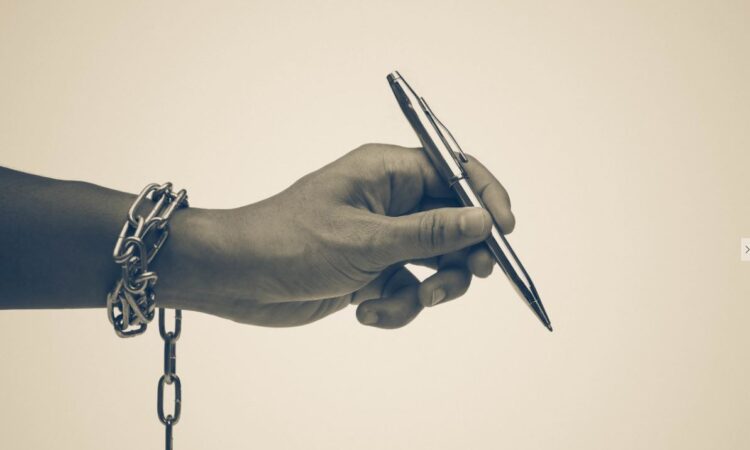
At the end of last week, Eunews first published online a photo of a questionable poster that a European newspaper, Politico, used, among others, to publicize the debate tonight (April 29) of the candidates to become President of the European Commission in Maastricht, the Netherlands.
There were thousands of reactions online, particularly from anti-EU “keyboard warriors” who attacked “Brussels” rather vehemently. Some wanted to know if EU funds for communication were used to organize the debate, and an MEP from the League, Marco Zanni, promised to submit a question on the issue.
There, this is a very dangerous approach. Some institutions of the European Union finance communication, and therefore also the press at times, just as they also finance film production, it is true. There is, however, a basic rule in this funding, the origin of which is in the European Treaties, and that is that those who receive the funding — the newspapers, the filmmakers, those who receive, in short, money from the Union — continue to do their job, and therefore write what they want, express the opinions they want, with the only limitation of not spreading disinformation or fake news, phenomena to combat which, by the way, the European institutions have other channels of funding and intervention.
It would be against the most basic rules of democracy, and also of respect for citizens and readers, for the press to be economically constrained to “speak well” of the public institution that gives the funding. Even in Italy, the government distributes funding to certain types of newspapers, and this is for all newspapers in proportion to their size, circulation, and number of journalists; in short, a set of criteria that always excludes opinion. That is, I fund you so that you write about energy, for example, according to certain quantitative and circulation conditions, but I will never syndicate, at this stage, what you will write (if, of course, it is legal!). Then, afterward, maybe a government or opposition figure will criticize the individual paper that received funding because it expressed an undesirable political position, but that is, with all evidence, another matter.
The “free and democratic” press is the basis of our civilized life and maintaining a healthy democracy (when one succeeds); it cannot be regulated by “government statements” from the authorities.
So, all is well with the criticism of Politico’s very critical manifesto on Italy. However, even if it turns out that the Maastricht that public money financed the event, I hope this does not lead to any consideration of the right of Politico and other newspapers to continue to say what they see fit. It is also thanks to this freedom that political majorities change, that those who spent years, or even decades, in the opposition find themselves in government at some point. I hope that we do not want to end this path (which is cyclical) once we have the government we want.
English version by the Translation Service of Withub






